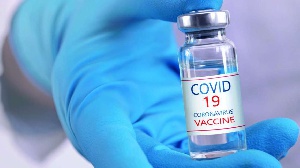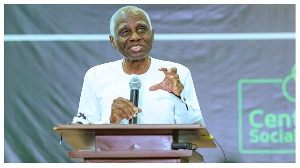In December 2020, the United Nations announced that there are three COVID-19 vaccines for which certain national regulatory authorities have allowed the use, but none have received WHO authorization.
This information marked not only a major move in the exploration for the COVID-19 vaccine but also beamed a ray of hope in restoring the old normal, the usual social interaction.
While the assessment of the Pfizer vaccine was assured by the end of December 2020 and for some other candidates soon thereafter, January 2021 came with floods of extra surprises.
Surprises that are thought to be expected, but came too early. The sale of fake COVID-19 vaccines by criminals who pose as health staff offering fake coronavirus vaccines in order to extort sums of money from victims.
In a certain case that took place in the United Kingdom, a 92-year-old woman was injected with an unknown substance after a man who claimed to be a health official visited her home.
Though reports say the man is wanted by the police for also carting away with the woman’s £160, there are still lingering claims that the fraudulent activity as regards the sale of fake vaccines is still prevalent in the United Kingdom.
Even more reports from the UK reveal that fraudsters have also initiated fresh means of getting at unsuspecting members of the public by sending text messages in the guise of the National Health Service (NHS) implying that the recipients are eligible for a coronavirus vaccine.
In the same ruse scheme, recipients are also referred to an exact parody website that poses as the NHS website and are required to input their credit or debit card details so their address location can be verified. Regardless, there have already been over 50 reports of vaccine-related scams in the five weeks since the Pfizer vaccine was approved in the UK alone.
These scams are sometimes carried out to trick people into handing over their personal details such as texts that claim to be from the N.H.S”s contact tracing service and fake messages that tell people they are eligible for a support grant.
According to a news report by the Guardian, “Interpol has issued a global alert to law enforcement agencies around the world warning them that organized crime networks may try to sell fake Covid-19 vaccines or steal real supplies.
The global police coordination agency, based in France, said on Wednesday it had issued an orange alert to police forces in its 194 member states warning them to prepare for vaccines to be targeted both physically and online.
It said the pandemic had already triggered “unprecedented opportunistic and predatory criminal behavior” and warned of a new wave of criminal activity “in relation to the falsification, theft, and illegal advertising of COVID-19 vaccines.”
In Nigeria, misinformation, and disinformation regarding the COVID-19 vaccine have been prevalent. Especially in the previous year where misleading information about indigenous COVID-19 vaccines and medications flooded social media; misled many unsuspecting members of the public.
Though the matter as regards the fake COVID-19 vaccine is yet to spread in Nigeria, perhaps because of the absence of the vaccine in the country; a recent news report by the GuardianNG warns about an already looming sales of fake Covid-19 vaccines in Kano State.
This existing widespread situation in the U.K and a surging predicament in Nigeria calls for a deliberate attempt to stay abreast of the surging misinformation that may come alongside the vaccine when it eventually arrives.
Regardless of these avalanches of concerns, Nigeria expects to receive 100, 000 doses of vaccines in this current month of January. Nonetheless, there are rising concerns that most Nigerians may be unwilling to receive the vaccine dosage.
In 2004, the Polio vaccine received stiff resistance in northern Nigeria as most people were unwilling to accept it. Aware of this, the federal government has appealed to Nigerians to be open to the vaccine when it finally arrives, as President Buhari and VP Osibanjo have already pledged to be among the first to be vaccinated.
Vaccine hesitancy has always been a major challenge in Nigeria and Africa entirely. People are very agnostic to the acceptance of vaccines and for African-Americans, the bitter lessons of the Tuskegee syphilis experiment (a project that deliberately used black men in Alabama as specimens) remain vivid and haunting.
A poll conducted by Dubawa on 55 random respondents in Nigeria revealed that 54.5% which is 30 out of the entire 55 respondents are prepared to take the Coronavirus vaccine when available, while 45.5%, [25 out of the 55 respondents] would not take part in such vaccination. The majority of the respondents said NO reason that “it’s a conspiracy to dominate the masses.”
Though these findings are not universal and general, they reveal a new spectrum of concerns for public health officials to worry about, in view of the scale of rejection of a vaccine. Consequently, just as efforts are geared towards a vaccine, educating people on why it’s crucial should also be prioritized.
Africa News of Thursday, 14 January 2021
Source: dubawa.org

















